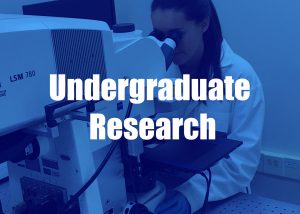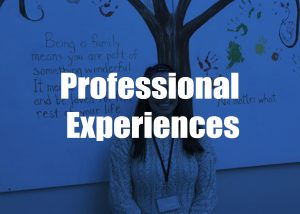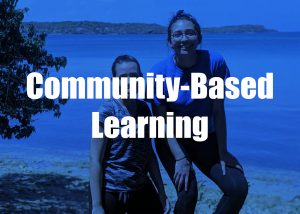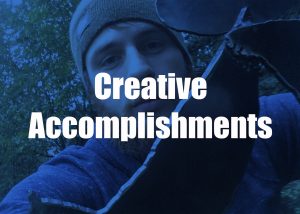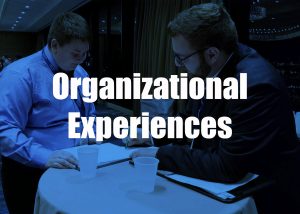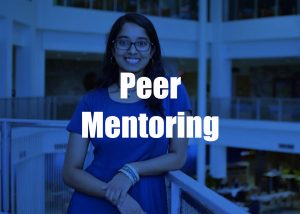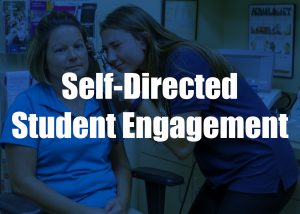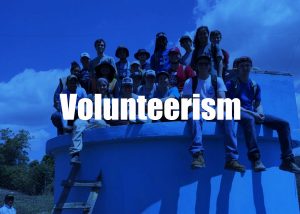Program theses, capstone projects, and independent research
Building My Own Research Project
by Taylor Yount
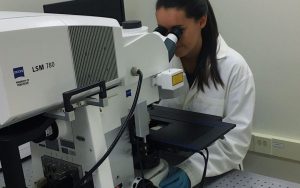
This semester, I had the opportunity to engage in an undergraduate research experience in the Miyashiro Lab at Penn State. I studied bacterial communication using the symbiosis that exists between the Hawaiian squid Euprymna scolopes and the marine bacterium Vibrio fischeri. I was able to build my own research project, which allowed me to ask my own research questions, develop testable hypotheses, design experiments, and interpret my results. I had the opportunity to disseminate my findings to the scientific community by presenting posters at the Eberly College of Science Undergraduate Exhibition and the Allegheny Branch American Society for Microbiology Annual Meeting. This research experience has allowed me to collect data to be included in my honors thesis, which will be finalized in the Spring of 2020.
This experience is important to me because it allows me to help my community in a unique and specific way. The scientific community is just beginning to grasp the significant impact that bacteria living within us can have on our health. By researching bacterial communication within living animals, I am able to generate data that deepens our understanding of how bacteria persist and associate with hosts. Down the line, this knowledge can have significant implications in the development of novel drugs and treatments to prevent bacterial infections. Overall, gaining experience in research has helped me to build skills that make me a more productive scientist. By using these skills in the future, I will be able to continue expanding our knowledge of bacterial interactions, which will have immense impacts on the health of my community.
As a biochemistry and molecular biology major, my courses tend to line up very well with my experiences in the lab. I often learn topics in my classes that relate directly back to my research project. This helps me to build a more in-depth understanding of cell biology because everything that I learn has practical implications. I participate in a course called BMB488, which is research-based and allows me to practice interpreting data and presenting findings in the classroom. BMB488 helps me to keep my research organized and has improved my scientific writing skills. For these reasons, my academic studies and my research has combined into an overall fluid and inter-connected experience. This will allow me to get the most out of my time at Penn State, so that I can use the skills I learn here to build a successful career in research in the future.
The skills that I have gained throughout this experience cannot be learned in a classroom. I have been exposed to what a career in science really looks like, and this has played a large role in shaping my career goals. Originally, my passion for science has driven me towards a desire to attend medical school. However, my research experiences have led me to the realization that I want to acquire a PhD in Microbiology with a focus in Infectious Disease. More specifically, I have developed an interest in Psuedomonas aeruginosa infections in Cystic Fibrosis (CF) patients. In my future career, I plan to collect samples from CF clinics to study bacterial communication among P. aeruginosa populations. Disruption of this communication is a potential treatment strategy that may cure infections within the lungs of CF patients.
Click here to read more Undergraduate Research Student Stories!
Gaining Technical Skills in Geoscience
by Catherine Hanagan
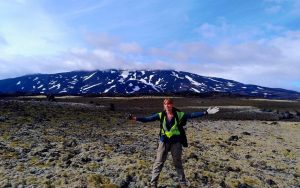
From early June to late August, I completed fieldwork in southeast Iceland with an Icelandic professor and a French student. Every day, we travelled to remote locations on the island to set up GPS stations. Finding each new station was comparable to geo-cacheing, and we were able to establish roughly 6 per day, while taking down the same number. Each station remained for roughly three days to allow sufficient communication between the ground instrument and the satellites. Ground position is determined with the data and compared with the station’s previous positions to reveal how that location is changing through time. The awesome nature of tectonic, magmatic, and post-glacial forces in Iceland leaves plenty to unravel!
This experience taught me new technical skills in geoscience application as well as new skills in scientific and international communication/collaboration. It was a chance to live abroad, experience a different culture, and be a scientist—all in one! The opportunity and all that I have learned from it will stick with me both personally and professionally.
It would have been simple to complete the field work without understanding the applications of the data we collected, but understanding the science behind why we were collecting it made it interesting. Furthermore, we can use this data in future studies, and hopefully give useful information back to the scientific community!
Though I may not end up being a geo-technician, I have learned from this experience that I can and will conduct research in the future. To that end, grad school is in my future.
Click here to read more Undergraduate Research Student Stories!
Choose another Student Story category below:

